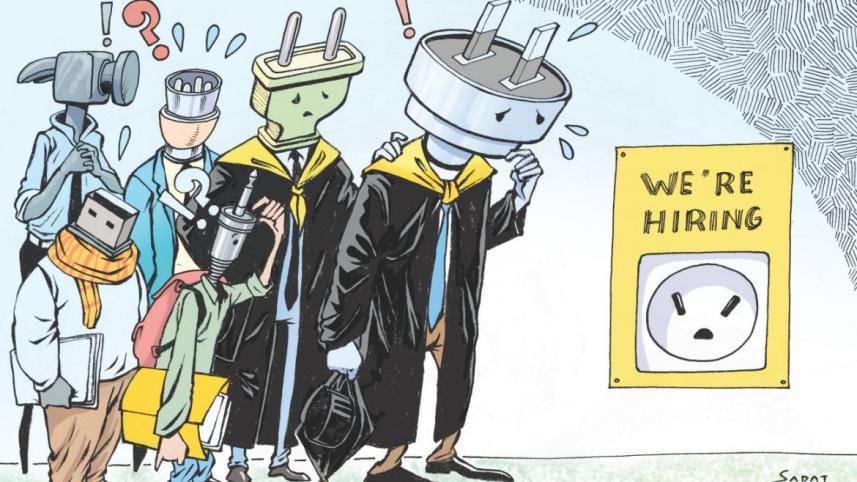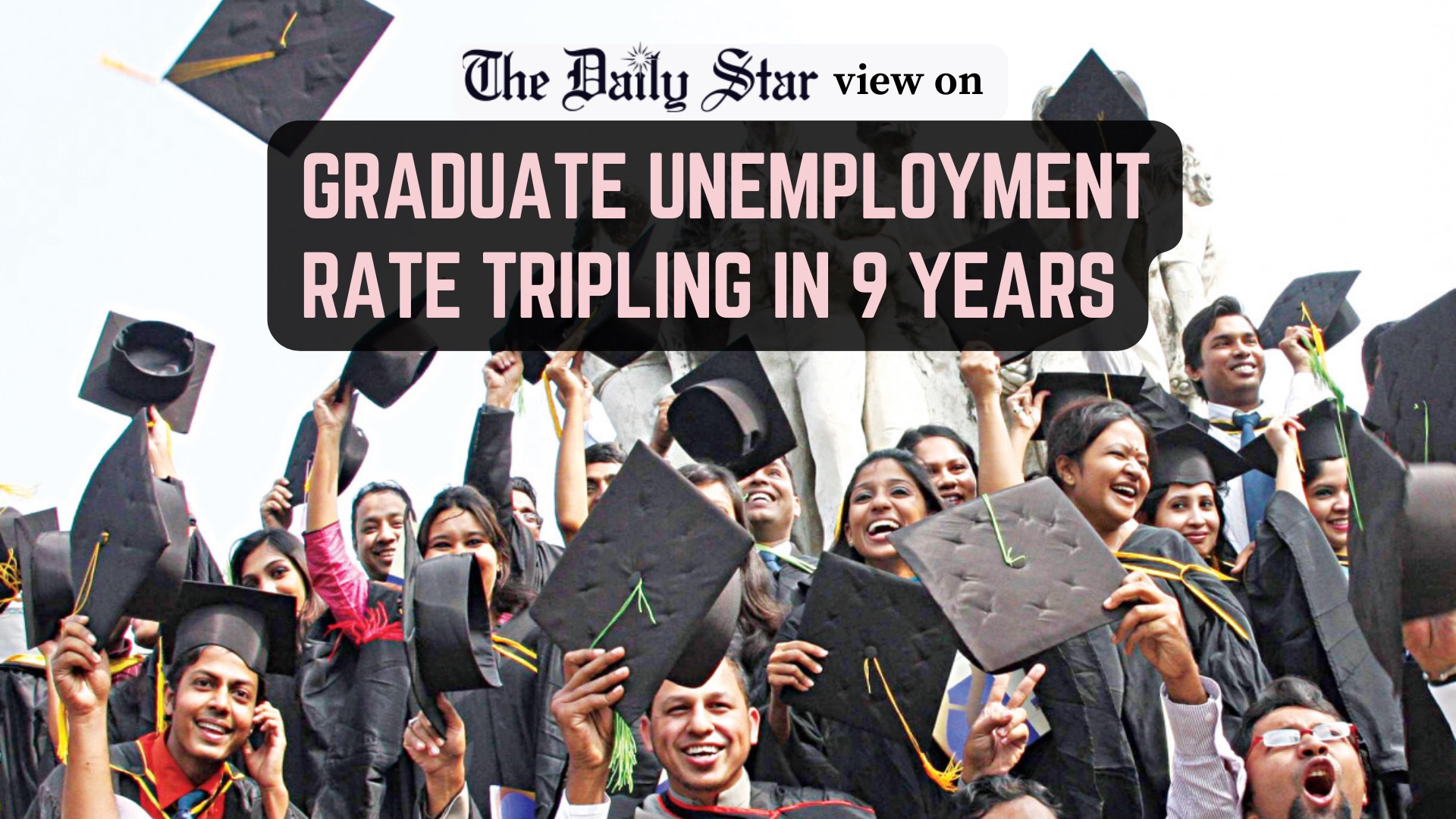Rethinking our labour market challenges

In a recent report on the labour market of Bangladesh published in The Daily Star, one of the key issues highlighted is the mismatch in the labour market, particularly between the oversupply of tertiary graduates and sufficient job creation. However, the concept of a "labour market mismatch," in my view, has become an overused and overly simplistic explanation. This narrative diverts attention from deeper economic challenges, allowing policymakers and employers to shift the blame for unemployment and underemployment onto workers' supposed lack of skills, rather than addressing the systemic issues at play. Education institutions—both colleges and universities—are responsible for the skill mismatch among graduates.
It is well understood that labour market mismatch may occur because of a lack of investment in key industries. When formal sector industries fail to grow or modernise in line with the demands, it is easy to claim that there is a shortage of skilled workers rather than admit that the industry itself is lagging behind in innovation or that the economy has not created enough high-quality jobs. It is asserted that except for the ready-made garment (RMG) industry, other industrial bases such as the information and communication (ICT) sector are still weak in this regard. To be specific, the Asian Development Bank's tracer study on ICT graduates in the country has found that job placement rate is as low as 57.6 percent.
The term "labour market mismatch" is often used as a blanket explanation, which can obscure more critical factors such as low wages and poor working conditions. Even when job vacancies exist, positions remain empty because they fail to meet workers' expectations in terms of pay, benefits and/or job security. This is not a mismatch of skills, but a mismatch between what workers' expectations are and what the employers are willing to offer.
As a consultant for the World Bank, I had the opportunity to conduct a diagnostic analysis of the tertiary education sector in Bangladesh. As part of this effort, the World Bank conducted a tracer survey in 2017 that asked unemployed tertiary graduates whether they had rejected job offers. According to the findings, 26 percent of unemployed graduates reported being offered jobs but having chosen to refuse them. The reasons for refusal varied, with low salaries being the most common (46 percent), followed by poor working conditions (16 percent), unsatisfactory job positions (11 percent), inconvenient job locations (13 percent), and other factors (14 percent).
This data highlights that, in many industries, particularly the informal sector, poor working conditions—such as low wages, lack of job security, and limited benefits—are significant contributors to labour shortage. The issue of low wages is especially pronounced in the informal sector, where there is little standardisation of pay or clear paths for career progression. According to the 2017 World Bank tracer survey, tertiary graduates from colleges were offered an average monthly salary of Tk 15,000, which is insufficient given the rising living costs.
Moreover, many unemployed graduates, particularly those with tertiary education, tend to hold out for public sector jobs, which are seen as more stable and better-paying, rather than accepting lower-paying jobs in the informal sector. This preference for public sector employment can extend their period of unemployment, further complicating the job market dynamics.
Therefore, attributing labour shortages solely to a lack of qualified candidates oversimplifies the issue. The real challenge lies in the quality of jobs being offered. Improving labour standards—through wage reforms, better working conditions, and more robust career pathways—could play a crucial role in addressing these shortages and reducing unemployment among graduates.
In my view, the solution to the labour market challenges requires a multifaceted approach that addresses both the demand and supply sides of the labour market.
First, both the government and the private sector should invest in improved labour market information systems that can connect employers with jobseekers in real time. This would help reduce the gap between job openings and suitable candidates by providing timely, accurate data on available positions and the skills required. One potential initiative is for the government to establish employment centres at the upazila level, under the Department of Labour. These centres could act as bridges between jobseekers and employers, offering job matching services, as well as running reskilling and upskilling programmes to equip recent graduates with the skills that align with current economic demands.
Second, the government should consider formulating and enforcing a minimum wage law that reflects the cost of living across different regions. Establishing minimum wage standards, and ensuring they are periodically adjusted for inflation and regional economic conditions, would make jobs more attractive to workers. This would not only help reduce the perception of a labour market mismatch but will also improve working conditions, creating a more motivated and productive workforce.
While some degree of mismatch may exist, the education system should not be held solely responsible for that. To resolve the labour market dysfunction, the underlying systemic issues must be acknowledged and addressed properly.
Dr Shamsul Arifeen Khan Mamun is a professor of economics and is currently attached to the Directorate of Secondary and Higher Education (DSHE) under the Ministry of Education.
Views expressed in this article are the author's own.
Follow The Daily Star Opinion on Facebook for the latest opinions, commentaries and analyses by experts and professionals. To contribute your article or letter to The Daily Star Opinion, see our guidelines for submission.




 For all latest news, follow The Daily Star's Google News channel.
For all latest news, follow The Daily Star's Google News channel. 


Comments